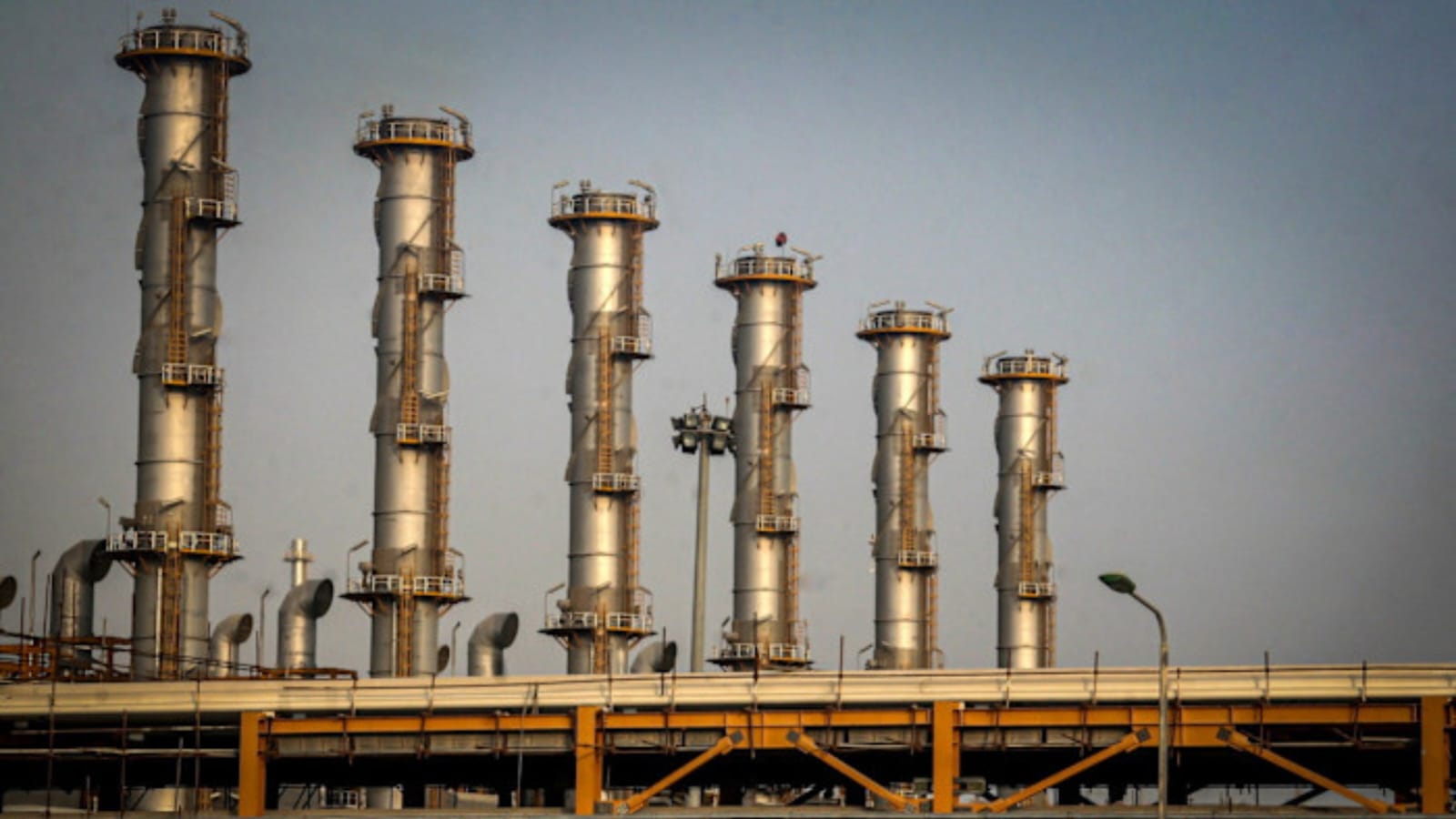On Monday, European stock markets saw significant gains in premarket trading, a response fueled by optimism surrounding the progress of ongoing trade talks between the United States and China. Over the weekend, the two global powers held their first round of negotiations in Geneva, where both parties indicated that progress had been made. This development sent a positive signal to global markets, with European indices reflecting early gains as a result.
The market response highlights how interconnected the European economy is with the United States and China. Given the economic ties between these regions, any positive news regarding their trade relations can have widespread effects, influencing investor sentiment and market trends. The sense of optimism in Europe mirrors broader global sentiment, as investors hope that this early sign of cooperation will pave the way for a resolution to the ongoing trade issues between the two nations.
European Market Indices Show Positive Momentum
By 8:00 am CET on Monday, key European market indices were showing notable gains, reflecting an optimistic outlook from investors. The pan-European Euro Stoxx 50, which includes the 50 largest companies in the Eurozone, rose by 0.96%. This surge in the Euro Stoxx 50 pointed to a positive trend across European markets as a whole.
In Germany, the DAX, which tracks the 30 largest companies on the Frankfurt Stock Exchange, saw a rise of 0.88%. This increase was attributed to strong performances from Germany’s industrial and automotive sectors, industries that are especially sensitive to global trade conditions. Likewise, the French CAC 40 also rose by 0.86%, driven by solid gains in a variety of sectors, including energy, finance, and telecommunications. Meanwhile, the FTSE 100 in the UK, though still positive, saw a smaller rise of 0.34%. The UK’s more cautious response reflected the ongoing uncertainty regarding Brexit and its potential impact on the British economy.
These early gains in European markets suggest a broad sense of relief among investors, as global trade tensions appear to ease with the potential for a deal between the US and China.
Trade Talks in Geneva Spark Global Optimism
The optimism that fueled European markets was primarily driven by the results of the trade talks between the US and China, which were held in Geneva over the weekend. This meeting marked the first round of discussions between the two countries and was seen as an indication that both sides were willing to engage in diplomacy to address key issues. Both the US and China expressed that progress had been made, though the specifics of the discussions remained vague.
For global investors, any sign of progress in US-China relations is seen as a welcome development. The economic relationship between these two nations has far-reaching implications for global trade, and a resolution to their trade disputes could help stabilize supply chains, reduce tariffs, and foster more open market access. This, in turn, could lead to a more robust global economy and, by extension, benefit European markets that rely heavily on international trade.
The Role of Trade Diplomacy in Shaping Market Sentiment
Trade diplomacy is a crucial factor in shaping market sentiment, particularly in times of global uncertainty. The US and China have been at odds for years, primarily over issues like intellectual property rights, trade imbalances, and market access. The recent talks in Geneva, however, signal a shift towards cooperation, which could alleviate the tensions that have affected global markets.
While it’s still early to draw definitive conclusions, the fact that both sides agreed to meet and discuss their differences suggests that there is potential for a long-term resolution. A successful trade agreement would not only benefit the US and China but could also have ripple effects on the global economy, bringing stability to markets and reducing the risks associated with protectionist policies.
Currency Markets React Cautiously
While European stock markets responded positively to the news of the US-China trade talks, the currency markets took a more cautious approach. The euro, a key currency in global trade, fell by 0.24% against the US dollar, trading at 1.12218 at 8:00 am CET. Similarly, the British pound also weakened slightly, losing 0.17% against the dollar and trading at 1.32837.
Currency markets are often more sensitive to short-term economic factors than stock markets. In this case, the decline in the euro and pound could indicate that currency traders are less certain about the long-term effects of any potential trade deal. While equity markets generally responded well, the currency market’s more measured response reflects the fact that the trade talks are still in their early stages and that more concrete developments are needed before a lasting impact is felt.
Divergence Between Equity and Currency Markets
The contrasting responses from equity and currency markets are not unusual. Stock markets tend to reflect investor sentiment, which is often shaped by expectations of future growth and economic stability. In contrast, currency markets are more directly influenced by immediate economic conditions such as interest rates, inflation, and trade flows.
In this case, European equities surged on the back of positive news from the US-China trade talks, but currency markets remained cautious, reflecting uncertainty over the long-term effects of any agreements. This divergence underscores the complexity of global financial markets and highlights how different segments can react differently to the same news.
Key Sectors Show Gains on Trade News
Certain sectors of the European economy have benefitted more directly from the positive trade news. The industrial sector, for example, saw a boost as the prospect of improved trade relations typically leads to higher demand for goods and services. In Germany, the automotive sector, which is heavily dependent on global supply chains, also saw positive movement as news of potential trade stabilization buoyed investor sentiment.
The financial sector also reacted positively to the news. Bank stocks, in particular, tend to perform well in environments where trade agreements promote global economic stability. Investors expect that such agreements will lead to increased international investment and stronger economic growth, both of which are favorable for the financial sector.
Geneva’s Neutral Setting Enhances Diplomatic Efforts
The location of the US-China trade talks—Geneva—played a significant role in promoting constructive dialogue between the two countries. Geneva, known for its longstanding tradition of neutrality and international diplomacy, provided a neutral environment in which both the US and China could engage without the pressure of domestic political considerations. This neutrality likely fostered a more cooperative atmosphere, which could ultimately lead to more effective negotiations and a potential resolution to the trade dispute.
Cautious Optimism Prevails Among Investors
Despite the positive market response, analysts have urged caution. Trade negotiations between two major global powers like the US and China are typically long and complex, and there remains a significant possibility of setbacks along the way. As a result, while there is optimism about the potential for a deal, the road ahead is uncertain, and investors are encouraged to remain prepared for potential volatility.
The Economic Implications of US-China Trade Progress for Europe
The potential progress in the US-China trade talks holds significant implications for Europe, particularly for countries like Germany and France, which rely heavily on exports. A resolution to the trade tensions could lead to more predictable supply chains, lower costs for manufacturers, and increased trade flows. Additionally, the easing of tariffs could reduce the costs of goods imported to Europe, which would have a positive impact on inflation and consumer prices.
However, Europe will need to carefully monitor how the trade talks evolve, as any disruptions in the global economy can have cascading effects across regions. The interconnected nature of the global economy means that trade deals in one part of the world can affect markets in other regions, including Europe.
Central Bank Policies and Future Economic Outlook
The progress in the US-China trade talks could have significant implications for central bank policies in Europe and the US. The European Central Bank (ECB) and the Bank of England (BoE) have both maintained cautious monetary policies in response to uncertainties surrounding global trade and economic growth. If the trade talks result in a more stable global environment, central banks may feel more confident in tightening their monetary policies, which could help manage inflation and support economic growth.
In the US, the Federal Reserve has already signaled a dovish stance on interest rates, and the outcome of the trade talks could influence the future direction of US monetary policy.
A Sign of Hope for Global Trade and Economic Stability
The US-China trade talks have provided a glimmer of hope for global trade and economic stability. While European stock markets responded positively to the initial signs of progress, currency markets remained cautious. The outcome of these negotiations will likely have wide-reaching effects on the global economy, with Europe positioned to benefit from improved trade relations. However, as with any complex negotiation, it is important for investors to remain vigilant, as the path to a final agreement may be fraught with challenges. The developments in Geneva serve as a reminder of the interdependence of global financial markets and the power of diplomacy in shaping economic sentiment.








